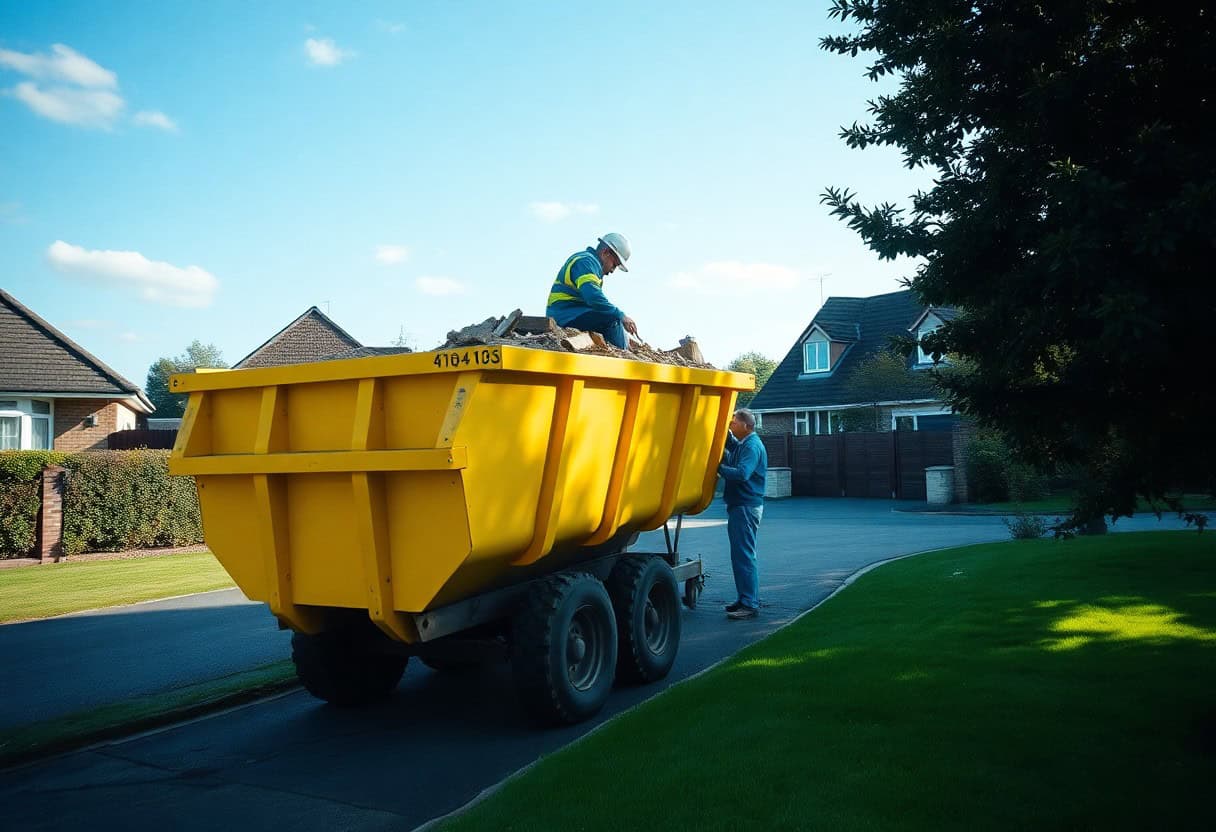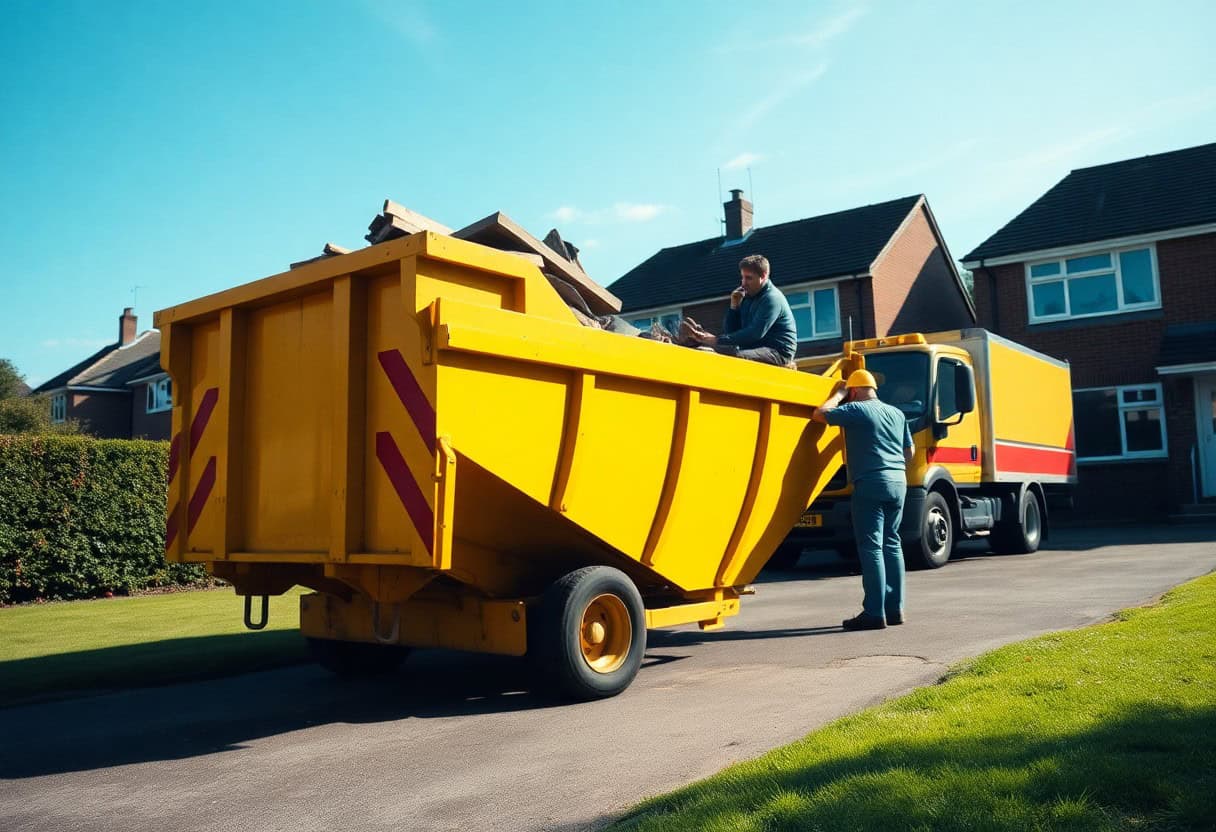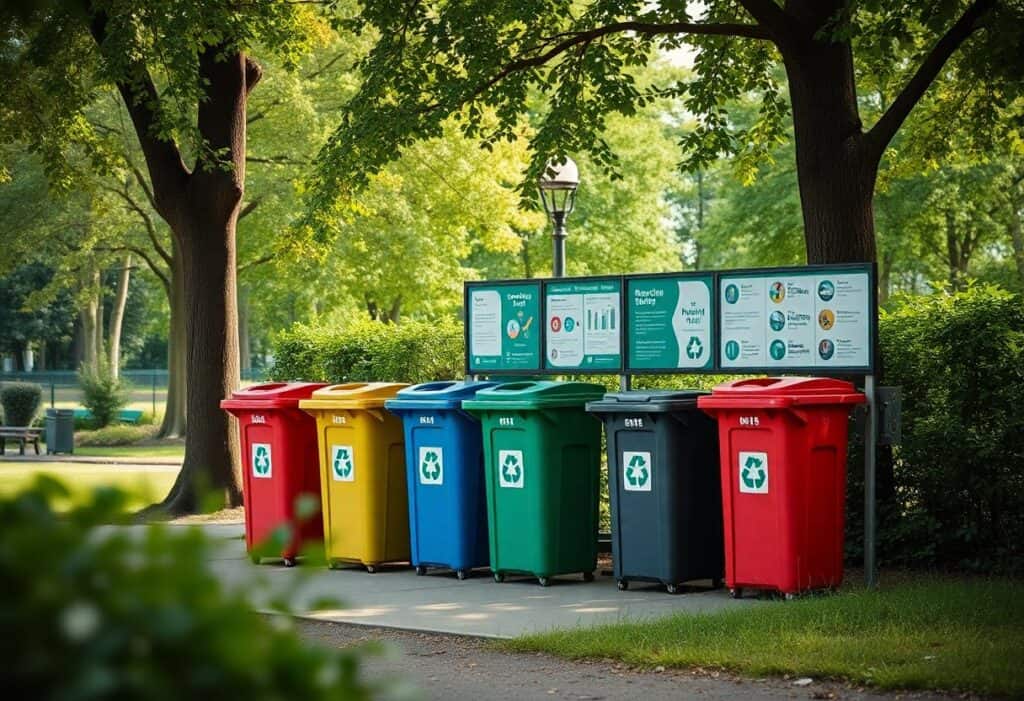There’s a lot to consider when you’re planning to hire a skip in Surrey, especially with various regulations and options available. To ensure a smooth process, you need to understand what size skip you require, the types of waste you can dispose of, and local council regulations regarding permits. This guide will provide you with all the necessary information, helping you make informed decisions and avoid potential pitfalls when booking your skip hire.
What is Skip Hire?
A skip hire service allows individuals and businesses to rent a large container for waste disposal. This is particularly useful for projects such as renovations, clearances, or garden work. For more details on the process, check out this Guide to Hiring a Skip.
Definition and Purpose
An easy and efficient way to manage waste, skip hire provides you with a designated space to dispose of your rubbish. Whether it’s household waste or construction debris, hiring a skip allows you to keep your environment tidy and your project on schedule.
Types of Skips Available
Skip hire services offer various types of skips to suit different needs. The most common types include:
| Mini Skip | Ideal for small domestic projects. |
| Midi Skip | Perfect for mid-sized renovations. |
| Builders Skip | Commonly used for construction work. |
| Roll-On Roll-Off (RoRo) | Best for large-scale projects and commercial use. |
| Lockable Skip | Provides security for valuable materials. |
The variety of skips ensures that you can choose one that perfectly meets your specific project needs.
At your convenience, you can select from these types of skips, helping you manage waste effectively. Consider your project size and the type of materials you will dispose of when making your decision. Here’s a detailed view of the types:
| Mini Skip | Holds up to 2 cubic yards of waste. |
| Midi Skip | Capacity of about 4 cubic yards. |
| Builders Skip | Typically holds 6 to 8 cubic yards. |
| Roll-On Roll-Off (RoRo) | Sizes range from 15 to 40 cubic yards. |
| Lockable Skip | Security for sensitive items. |
The choice of skip you make not only affects your waste disposal but also ensures compliance with local regulations.
Benefits of Using Skip Hire
Some of the key benefits of skip hire include saving time, reducing stress, and ensuring proper waste management. Hiring a skip allows you to dispose of large amounts of waste efficiently, making your home improvement projects or clean-ups more manageable. With a range of sizes available, you can choose the skip that best suits your needs, ensuring that you only pay for what you require.
Convenience and Efficiency
For busy individuals, skip hire offers unmatched convenience. You can arrange for a skip to be delivered to your property at a time that suits you, allowing for easy loading and minimal disruption. Once you’re finished, the skip company will handle the collection, which means you can focus on your project without worrying about waste disposal logistics.
Environmental Responsibility
By opting for skip hire, you also take a step towards being more environmentally responsible. Many skip hire companies prioritise recycling and ensure that the waste collected is sorted properly. This means that less waste ends up in landfills, which is better for the environment.
Efficiency in waste disposal is key when considering environmental responsibility. By using a skip hire service, you contribute to a more sustainable approach by allowing professionals to sort and recycle your waste effectively. This reduces the amount of rubbish that ends up in landfills and ensures that items such as metals, plastics, and organic waste are processed appropriately, minimising your carbon footprint and promoting a healthier planet overall.
How to Choose the Right Skip Size
Clearly, selecting the appropriate skip size is crucial for efficiently managing your waste. It’s important to consider the volume of debris you need to dispose of, as hiring a skip that’s too small can lead to overflow and additional costs, while a skip that’s too large may result in unnecessary expenses. Assessing your requirements accurately will ensure you hire the most suitable skip for your project.
Common Skip Sizes
Around the UK, skip sizes typically range from 2-yard mini skips to 40-yard roll-on roll-off skips. Smaller skips are ideal for minor garden projects or household clear-outs, whilst larger options cater to commercial projects or extensive renovations. Familiarising yourself with these common dimensions will help you make an informed decision.
Assessing Your Needs
Size matters when it comes to hiring a skip, and you’ll need to evaluate your specific waste disposal requirements. Choose a skip that matches the volume and type of waste you’ll be disposing of. Consider factors such as the *nature of the waste*—whether it’s general waste, construction debris, or garden refuse. Additionally, think about the *area available* for placement; if space is limited, a smaller skip may be your best option. Don’t forget to factor in excess waste as well; having a bit more capacity can be advantageous to avoid any last-minute scrambles.

Cost Factors in Skip Hire
Keep in mind several factors that influence the cost of skip hire, including:
- Skip size
- Type of waste
- Hire duration
- Location in Surrey
- Permit requirements
Any choices you make regarding these factors can significantly impact your overall expenditure.
Pricing Structures
To effectively plan your budget, understand the different pricing structures available for skip hire. Some companies offer fixed rates based on the skip size and duration, while others may use a variable pricing model that considers weight and type of waste. Familiarise yourself with these options to avoid unexpected charges.
Additional Fees to Consider
Along with base costs, you should also be aware of potential additional fees that can apply during skip hire. These may include charges for exceeding weight limits, disposal of forbidden items, or the need for a skip permit.
A thorough understanding of additional fees is crucial for avoiding surprises. For example, if your skip is loaded beyond the weight limit, you might incur extra charges that can significantly inflate your costs. Moreover, certain types of waste, such as hazardous materials, often come with strict regulations and substantial fees for proper disposal. To ensure you remain within budget, always clarify what is and isn’t permitted in your skip hire agreement.
Booking Process for Skip Hire
After you’ve assessed your waste disposal needs, the booking process for skip hire is straightforward. You can visit Skip Hire in Surrey to compare options, allowing you to select the skip size that suits your project. Once you have your information ready, simply contact your chosen provider to confirm availability and make a reservation. Always ensure to provide accurate details regarding your location and access requirements.
How to Book a Skip
Above all, booking a skip is a simple process that requires you to gather some imperative details first. Start by determining the size of skip you need, based on the volume of waste you anticipate. Next, check for availability in your area and any specific regulations regarding skip placement. Finally, contact your chosen skip hire company to complete your booking, ensuring to enquire about delivery times and additional services if required.
What to Expect on Delivery Day
At the time of delivery, you can expect the skip to arrive within the agreed time frame. The delivery vehicle will be equipped to place the skip in your designated area, so ensure you have a clear space ready. Be prepared to assist the driver with any guidance on positioning if needed, especially in tight spots.
Process insights for delivery day highlight that you should stay close to assist with any unforeseen obstacles. The skip will generally arrive on a large vehicle, so ensuring clear access is important to avoid delays. The driver would place the skip according to your specified location, checking if it’s compliant with any local regulations. Once positioned, you can begin your project hassle-free, knowing your waste removal needs are managed effectively.

Local Regulations and Permits
For a smooth skip hire experience in Surrey, it’s crucial to be aware of local regulations and permits that may apply. Different boroughs can have varying rules pertaining to skip placement, sizes, and duration of hire. Ensuring you’re compliant with these local requirements will help you avoid unnecessary fines and delays.
Understanding Surrey Regulations
Among the various regulations you should consider, parking restrictions, loading bay usage, and skip placement on public roads top the list. Each local council has specific stipulations, so be sure to check the regulations specific to your area before making any arrangements.
Securing Necessary Permits
Necessary permits may be required before placing a skip on a public highway or pavement. It’s advisable to check with your local council for the specific permit needed, as these can vary across different areas.
Permits are crucial for legal compliance when placing a skip outside your property. You’ll generally need to apply for a licence from your local council, which may incur a small fee. It’s important to submit the application well in advance of your skip delivery date, as processing times can differ. Skips placed without the proper permits may lead to fines or your skip being removed by authorities. Always ensure you are following appropriate protocols for a hassle-free experience.
Final Words
Ultimately, understanding the importants of skip hire in Surrey can significantly enhance your waste disposal experience. By carefully assessing your needs and choosing a reputable provider, you can ensure a smooth process. For Reliable Skip Hire Surrey – Hassle-Free Waste Services, you can count on industry expertise and customer satisfaction. Make informed choices, and your waste management will be efficient and straightforward.
FAQ
Q: What items can I place in a skip?
A: Skips can accommodate a range of waste materials including general household rubbish, garden waste, construction debris, and furniture. However, certain items such as hazardous materials, electrical appliances, tyres, and batteries are not permitted. Always check with your skip hire provider for a comprehensive list of prohibited items to avoid any issues.
Q: How long can I keep a skip for?
A: The duration you can keep a skip varies depending on the hire company and the type of permit needed. Typically, skips can be hired for a period ranging from a few days to several weeks. If you require the skip for an extended period, it is advisable to discuss this with your provider when booking.
Q: Do I need a permit for a skip on the road?
A: Yes, if you’re placing a skip on a public road, a permit from your local council is necessary. The skip hire company can often arrange this for you, and it generally involves a small fee. For skips placed on private property, a permit is not required.
Q: How much does skip hire in Surrey typically cost?
A: The cost of skip hire in Surrey can vary based on factors such as skip size, rental duration, and type of waste. On average, you can expect to pay anywhere from £100 to £300. It is advisable to obtain quotes from multiple providers to ensure you find the best deal that meets your requirements.
Q: What size skip do I need for my project?
A: The size of the skip you require largely depends on the volume of waste you anticipate generating. Common skip sizes include 2-yard, 4-yard, 6-yard, and 8-yard options, with larger skips available for bigger projects. Assess your waste volume before making a decision, and consult with your skip hire provider for recommendations based on your specific needs.



